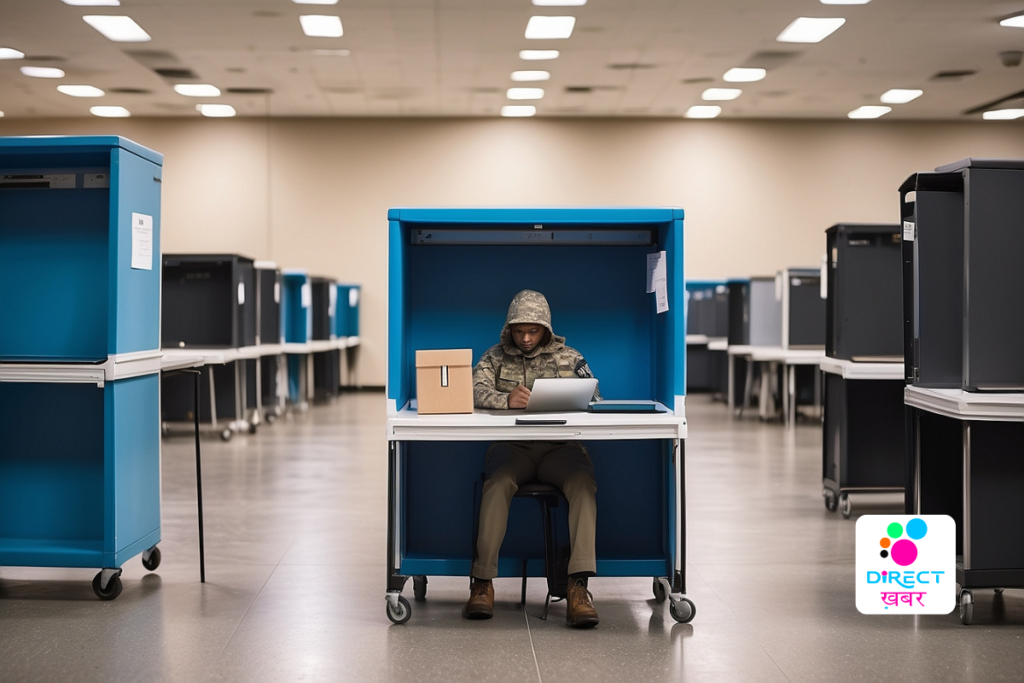Enhancing Election Security: Challenges and Solutions
Election security has become a paramount concern in modern democracies, given the increasing sophistication of cyber threats and the potential for foreign interference. This article explores the challenges facing election security and proposes solutions to mitigate risks and uphold the integrity of democratic processes.
In recent years, the landscape of election security has undergone significant transformation, driven by rapid advancements in technology and the growing interconnectedness of global networks. With the proliferation of digital platforms and the reliance on electronic voting systems, the vulnerability of electoral processes to cyber threats has become a pressing issue for governments and electoral bodies worldwide.

The threat of foreign interference, whether through hacking attempts, disinformation campaigns, or covert funding of political groups, looms large over democratic societies, undermining public trust and casting doubt on the legitimacy of election outcomes. As such, safeguarding the integrity of democratic processes has emerged as a paramount concern for policymakers, election officials, and cybersecurity experts alike.
This article delves into the multifaceted challenges confronting election security and offers a comprehensive framework of solutions aimed at bolstering defenses, enhancing transparency, and fortifying democratic institutions against the evolving threat landscape.
Challenges in Election Security:
Cyber Threats: Elections are vulnerable to cyberattacks aimed at disrupting voting systems, manipulating voter databases, or spreading misinformation.
Foreign Interference: Hostile foreign actors may seek to influence election outcomes through hacking, disinformation campaigns, or funding political groups.
Insider Threats: Malicious insiders or disgruntled employees within election organizations pose a significant risk to the integrity of elections.
Voter Suppression: Tactics such as voter intimidation, voter ID laws, and restrictive registration processes can disenfranchise certain demographic groups.
Funding and Resources: Limited funding and outdated technology hinder efforts to modernize election infrastructure and implement robust security measures.

Solutions to Enhance Election Security:
Robust Cybersecurity Measures:
- Implement end-to-end encryption for electronic voting systems to protect against tampering.
- Conduct regular cybersecurity audits and penetration testing to identify vulnerabilities.
- Enhance collaboration between election officials and cybersecurity experts to develop proactive defense strategies.
Transparency and Accountability:
- Ensure transparency in the election process by providing accessible information on voter registration, ballot counting, and election results.
- Implement measures to verify the integrity of voting machines and ensure they produce accurate results.
- Establish independent oversight bodies to monitor election procedures and investigate any irregularities.
Voter Education and Outreach:
- Launch public awareness campaigns to educate voters about common disinformation tactics and how to verify the accuracy of information.
- Provide resources for civics education in schools to promote voter engagement and civic participation.
- Offer multilingual assistance and voter support services to ensure all eligible citizens can participate in elections.
International Cooperation:
- Foster international collaboration to exchange best practices, intelligence, and technical assistance in combating election interference.
- Strengthen diplomatic efforts to deter foreign adversaries from engaging in malicious activities aimed at undermining democratic processes.
- Support initiatives such as election observation missions to uphold democratic norms and standards worldwide.
Modernization of Election Infrastructure:
- Allocate sufficient funding to upgrade outdated voting machines and election systems with secure and auditable technology.
- Implement paper trail backups for electronic voting systems to enable post-election audits and verification of results.
- Enhance voter registration systems with robust identity verification mechanisms to prevent fraud and unauthorized access.

Ensuring the security and integrity of elections is essential for upholding democratic principles and safeguarding the will of the people. By addressing the challenges of cyber threats, foreign interference, voter suppression, and resource constraints through proactive measures such as robust cybersecurity, transparency, voter education, international cooperation, and modernization of election infrastructure, societies can strengthen their democratic institutions and protect the sanctity of the electoral process. It is imperative for policymakers, election officials, and civil society to work together to implement these solutions and defend democracy against emerging threats in the digital age.






